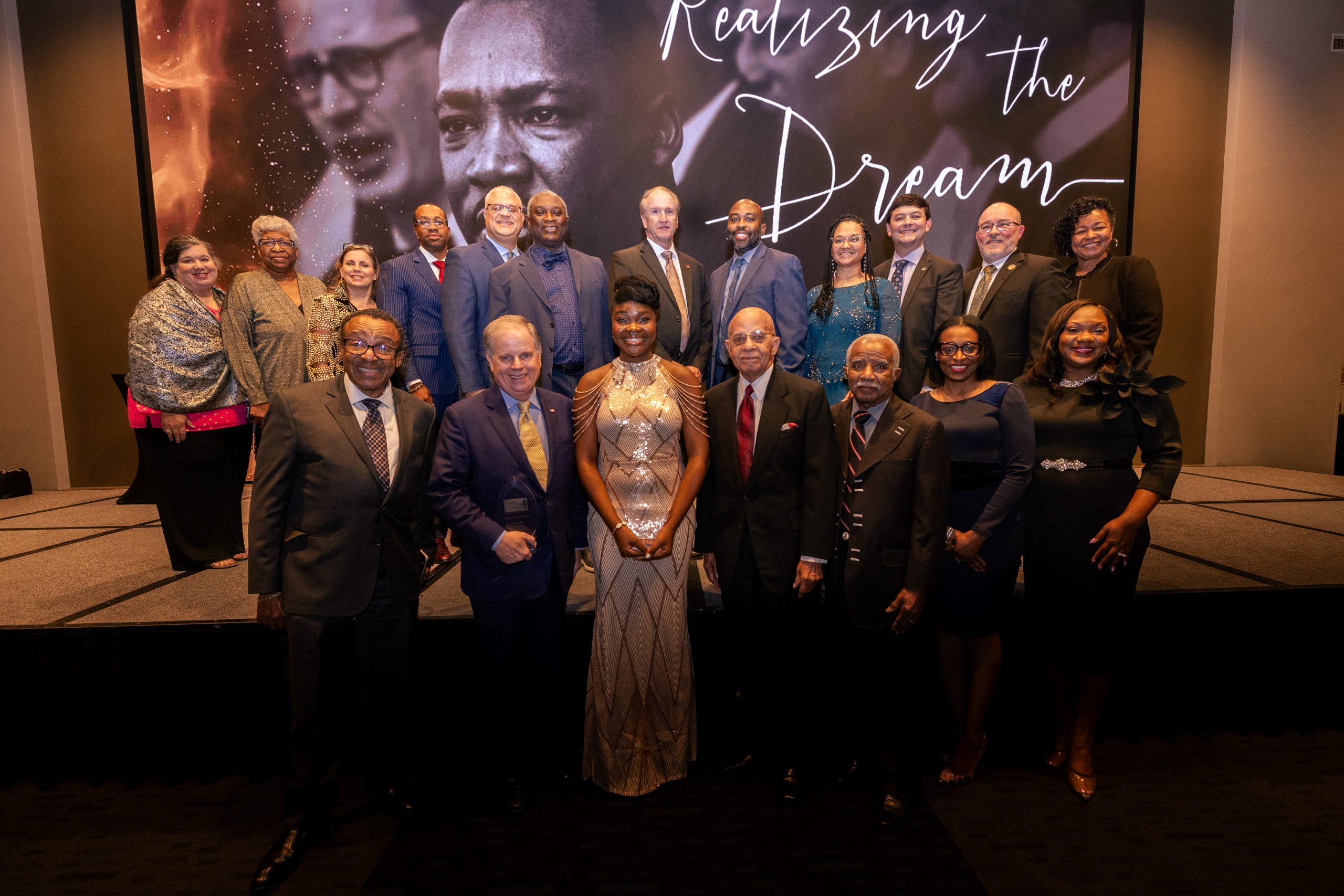TUSCALOOSA, Ala. – Pulitzer Prize-winning journalist Clarence Page reminded his audience of the power of semantics and linked ethics in journalism to qualities of leadership in his address at the 2024 Realizing the Dream Legacy Banquet on Jan. 12 in the Bryant Conference Center.
Author: Dr. Elisabetta Zengaro | Communications Specialist, Division of Community Affairs
The event has been held for 15 years in honor of Dr. Martin Luther King Jr.
Adebola Aderibigbe
Stillman College sophomore majoring in journalismReceived the Horizon Award
Aderibigbe was recognized for using her journalistic prowess to amplify seldom-heard voices that inspire change.
G. Douglas Jones
former U.S. senatorReceived the Call to Conscience Award
Jones, who served as senator from Alabama from 2018–2021, received the Call to Conscience Award for successfully prosecuting two former Klan members for the murder of four young girls in the 16th Street Baptist Church bombing, one of the deadliest crimes of the civil rights era.
Richard Arrington, Jr.
former Birmingham mayorReceived the Mountaintop Award
Arrington was elected as Birmingham’s first Black mayor in 1979, a position he held for 20 years. When he left office in 1999, the city had a record number of jobs and the lowest unemployment rate in its history. Arrington’s leadership enabled Birmingham to expand city limits by 60 square miles, increase its tax base, and reduce crime to its lowest rate in 25 years. During his tenure, Arrington increased minority employment in city government, number of Black department heads, and hiring and promotion of women.
Each recipient was recognized in a short video produced by Gray Lloyd of the Center for Public Television and Radio.

Page is a two-time Pulitzer Prize winner, a columnist syndicated nationally by Tribune Media Services and a member of the Chicago Tribune editorial board. His many honors include membership in the Chicago Journalism Hall of Fame and lifetime achievement awards from the National Society of Newspaper Columnists, the Chicago Headline Club and the National Association of Black Journalists. He is also the author of the best-seller “Showing My Color: Impolite Essays on Race and Identity.”
Throughout his address, Page not only connected ethics in journalism with qualities of leadership, but also discussed Dr. Martin Luther King’s impact on the civil rights movement and on his own decision to become a journalist. “I wanted to get out there and cover the movement,” Page said. “I wanted to cover the news and what was really changing every day in America and needed to be covered in a way that people would want to read about it.”
Expanding on this year’s theme of “Realizing the Dream Through Vision and Leadership,” Page referenced Dr. King’s famous 1967 speech, “Where Do We Go from Here?” in which King urged Americans to strive for a better future based on justice and equality.
Page said he agreed with King in his dissatisfaction with the status quo. “We all need to be divinely dissatisfied with the status quo, until we can improve it,” he said. “We can bring about the change that we need.”
Page concluded his speech by calling on audience members to maintain “a sense of divine dissatisfaction [with the present] to build a better future” and apply the qualities of leadership that King embodied: compassion, love and justice.
Prior to the start of the banquet, Page met with students from the host institutions — Stillman College, Shelton State Community College, and The University of Alabama — during which he discussed ethics in journalism.
